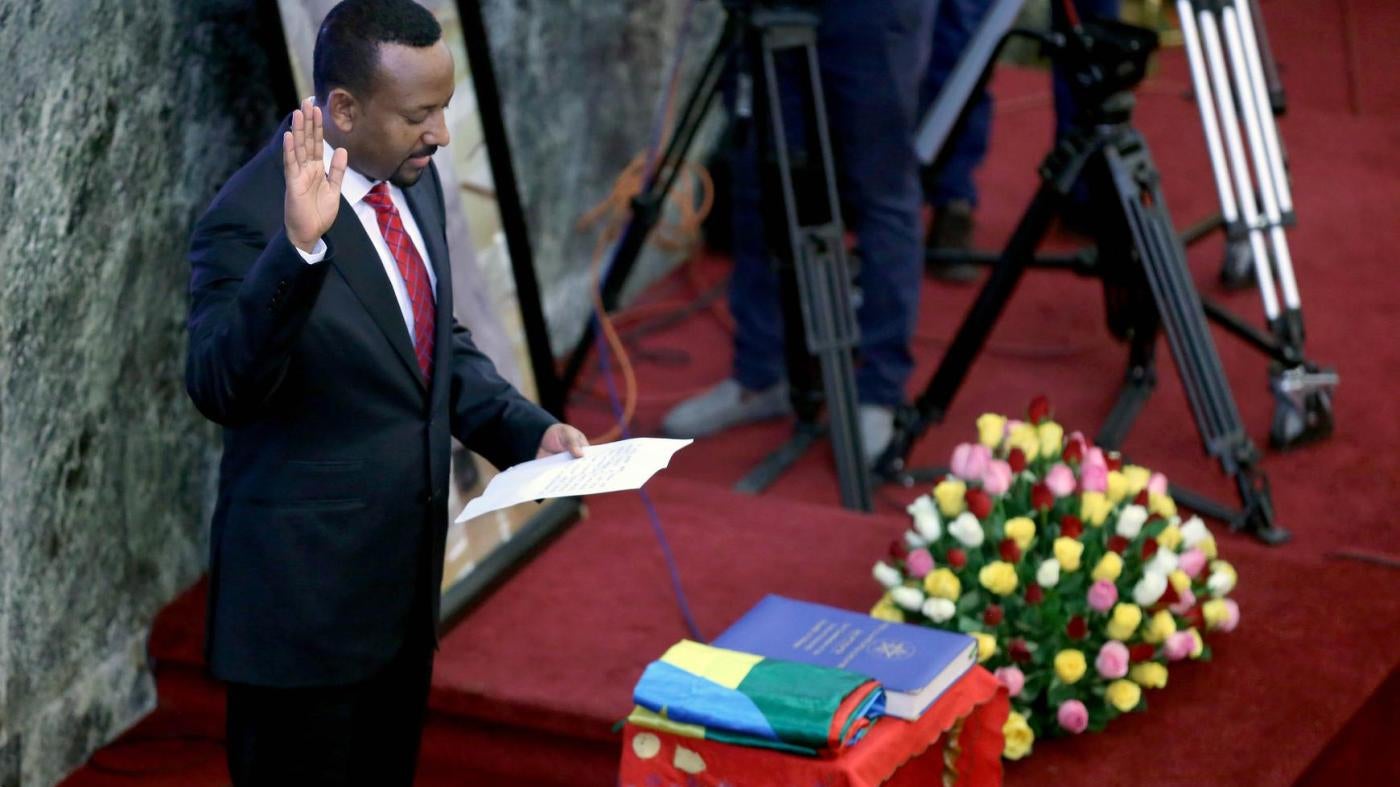Introduction
Ethiopia: Growing Uncertainty Marks Abiy’s First Year in Power
Prime Minister Abiy's early reforms have been followed by rising tensions and a security breakdown across Ethiopia. With elections scheduled for May 2020, the next year will be a critical test of Abiy’s commitment to democracy and his ability to unite an increasingly fractured country, restore law and order, calm tensions, and build on his early reforms that showed so much promise.
Part I
Review of Freedom of Assembly
Abiy’s ascension to the position of prime minister followed three years of protests that saw security forces use excessive force, kill more than 1,000 protesters, and arrest tens of thousands during widespread protests. Under Abiy, there have been limited protests but the conduct of federal security forces has greatly improved, although there continue to be incidents where authorities use excessive force in confrontations with protestors.
Part II
Review of Freedom of Expression
Significant progress has been made on media freedom in Ethiopia. In one year, Ethiopia has gone from being one of the leading jailors of journalists in Africa to having no journalists in jail for the first time since 2004. Diaspora media outlets previously banned in Ethiopia operate freely and journalists report few threats from the government’s security services. Despite the progress, there’s still a reluctance in the media to critique the government or ask difficult questions. Hate speech on social media, especially Facebook, is a serious and growing problem, although the government’s proposed hate speech law raises concerns it may be used to stifle legitimate expressions of dissent.
Part III
Review of Freedom of Association
Significant progress has been made, particularly around the revision of the Charities and Societies Proclamation, which regulates the conduct of civil society. Questions remain however about how the law, including registration, will be implemented. The acceptance of previously banned groups back into Ethiopia is another significant development given how alleged connections with these groups has been used for many years as a tool to crack down on peaceful expressions of dissent. It remains to be seen how the government will handle the rehabilitation and reintegration of former fighters.
Part IV
Review of Arbitrary Detention, Torture and Detention Conditions
Progress has been made toward eliminating the longstanding practice of torture in Ethiopian detention but not enough has been done to hold those responsible to account and to investigate past crimes. The government has acknowledged that torture occurred in the past, a positive step, and it has closed some abusive detention facilities. The use of arbitrary detention as a tactic to stifle dissent or opposition to the government has decreased but is still a concern. Human Rights Watch has received fewer reports of torture and ill-treatment than previously.
Part V
Review of Commitments to International Human Rights Norms
Progress has been made. After many years of refusing access, Abiy‘s government has taken the very encouraging step of extending invitations to some UN special rapporteurs. Issuing a standing invitation to UN Special Procedures would underscore the commitment of Abiy’s government to outside scrutiny, in sharp contrast to the previous government. Furthermore, the government’s transparency around its recent UPR submission was positive. And ratifying the Rome Statute of the International Criminal Court would make a positive statement about Ethiopia’s commitment to justice for the most serious international crimes.
Part VI
Review of Democratic Institutions and Political Space
While progress has been made, much more work needs to be done ahead of the May 2020 elections. The release of opposition leaders, opposition parties’ newfound freedom of operation, and Abiy’s efforts to hold constructive dialogues with opposition parties are all significant changes, representing concrete steps toward opening political space and creating plurality.
Part VII
Review of Accountability and Justice
There has been insufficient progress on accountability for past atrocities. The arrests of former officials, security force personnel, and others implicated in rights violations and corruption is a positive step, although it is hard to ignore the politicized nature of such arrests. There are still many people, including some who remain in government, who should be held to account for past crimes. The government has not presented a clear roadmap for how it plans to deal with the country’s abusive past.
Part VIII
Review of Conflict and Internally Displaced Persons
All of the progress in other areas threatens to be undone by the dramatic breakdown in law and order much of Ethiopia is experiencing. While peace with armed opposition groups and neighboring Eritrea is positive, increasing conflict along ethnic lines, rising tensions, the significant number of Internally Displaced Persons (IDPs), and the lack of any evident plan by the federal government to calm tensions is very worrying. Ethiopia’s government needs to urgently restore security and take confidence-building measures to calm tensions.



